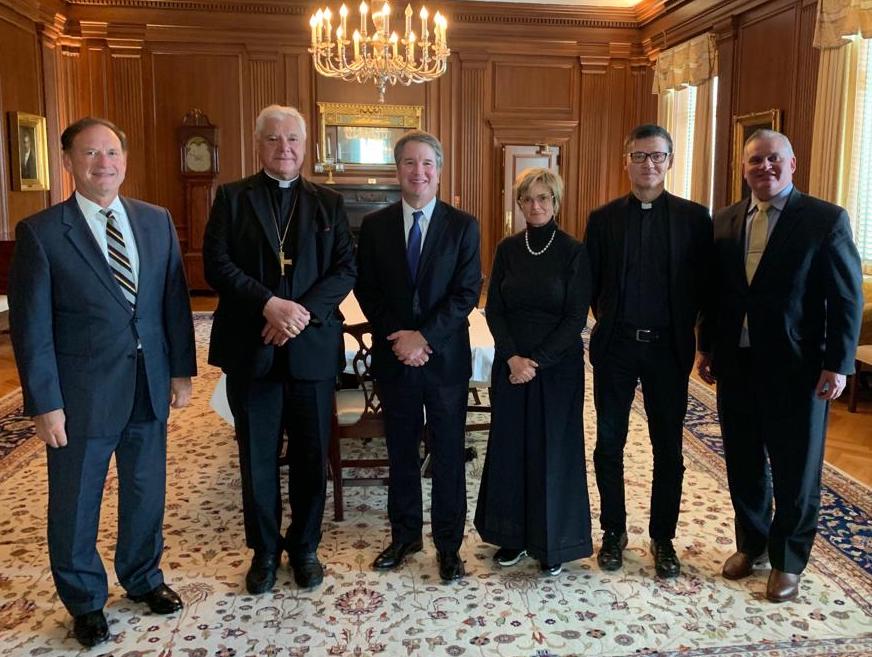What Were They Thinking? Justices Again Fail a Basic Ethics Test
Fix the Court asks the justices to explain recent appearances with individuals, institutions who’ve submitted “friend of the court” briefs
Questions of ethics have reemerged at the Supreme Court this week as Fix the Court has learned that Justices Samuel Alito and Brett Kavanaugh met Tuesday with the head of a group that submitted an amicus brief for the term’s most highly contested, and still open, cases.
In response, FTC is asking the court either to withdraw the brief or issue a statement addressing why the justices may continue to sit on the cases given the standard in federal law that a “justice […] shall disqualify himself in any proceeding in which his impartiality might reasonably be questioned.”

This past spring the court agreed to hear Bostock v. Clayton County (17-1618), Altitude Express v. Zarda (17-1623) and R.G. & G.R. Harris Funeral Homes v. EEOC (18-107) on whether Title VII of the Civil Rights Act prohibits employment discrimination against gay, lesbian and transgender people. On Aug. 22, the National Organization for Marriage submitted an amicus brief for all three cases in which the organization called the fired LGBT employees’ claims “a radical expansion of basic civil rights laws.”
Arguments took place on Oct. 8. This week, with the cases unresolved, NOM President Brian Brown (far right) met with Alito and Kavanaugh.
“It’s ethical lapses like this that doom the public’s trust of the Supreme Court – and rightly so,” FTC’s Gabe Roth said. “How can the average American believe that the justices will render an impartial decision when at least two of the nine are meeting with individuals with a clear view on how the term’s largest cases should turn out? What were the justices thinking?”
This is not even the first time this month a justice spent time with a “friend of the court” in an open case. On Oct. 22, Justice Elena Kagan spoke at University of Colorado Law School, just two weeks after CU signed on to an amicus brief supporting the continuation of the DACA program. The justices hear the DACA cases – Department of Homeland v. Regents of the University of California (18-587), Trump v. NAACP (18-588) and McAleenan v. Vidal (18-589) – on Nov. 12.
Justices have for years appeared in public with individuals and entities with business before the court. Justice Antonin’s Scalia’s terminal trip in 2016 was paid for by a businessman whose company had a case before the court a few months prior to the justice’s death. Justice Sonia Sotomayor in 2013 participated in the cert. vote in a case involving her publishing company, which had just months before spent tens of thousands of dollars sending her around the country to promote her autobiography.
A 2015 FTC study found that the three justices who own stocks in individual companies side with those companies 70 percent of the time in cases in which they filed an amicus brief.
NOM is no stranger to the Supreme Court, having also filed amicus briefs in Masterpiece Cakeshop, Ltd. v. Colorado Civil Rights Commission (link), Obergefell v. Hodges (link) and U.S. v. Windsor (link).